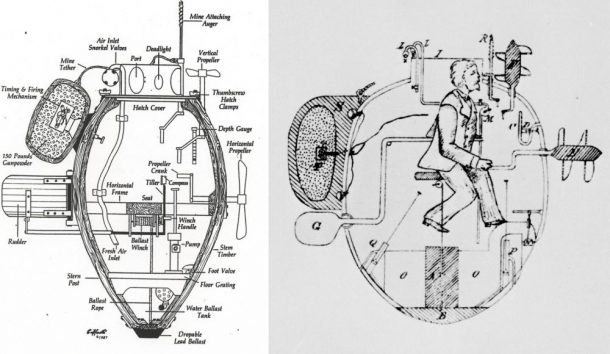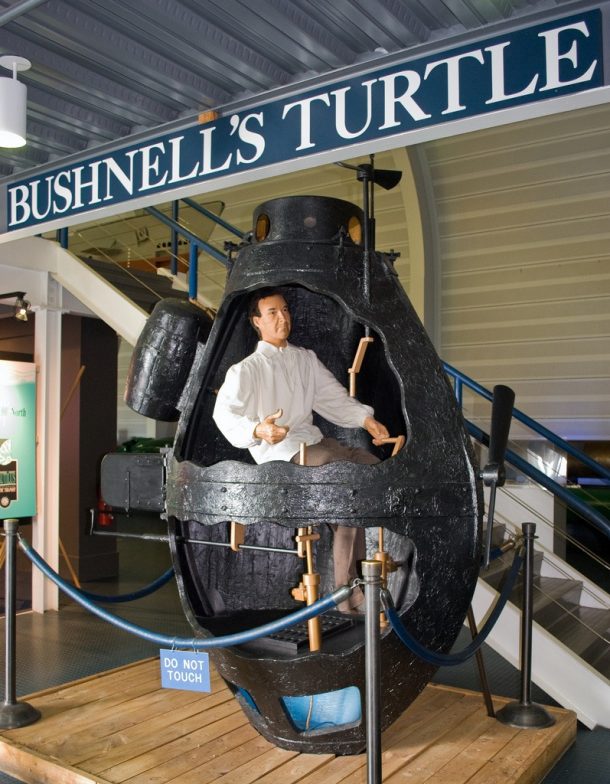The idea of having a boat that can submerge in water and can cruise below the enemy has fascinated every military leader since forever. There is also a legend that says that Alexander the Great put himself into a primitive form of the submersible boat to carry out underwater reconnaissance. Among the early concepts of underwater rowing boats, one was given by an Englishman named William Bourne in 1578. But till 1620 the plans were not put to the application until the Dutchman Cornelius Drebbel realized the concept and started working on it.
Drebbel’s submarine was built with wood and had propellers to keep the boat floating under water for several hours. The boat was attached with tubes to bring air from the surface for the crew. When he demonstrated his boat for the first time on the River Thames while staying underwater for three hours, rumors started that the men have died and disappeared in the river.
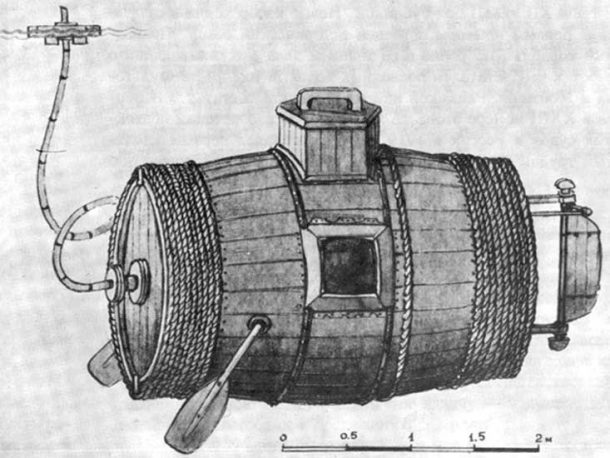
The Dutch poet and composer, Constantijn Huygens, witnessed the first demonstration. He wrote about the invention saying that this ‘bold invention’ can be used at the times of war by attacking the enemy by sinking their ships. Like Huygens, many others also understood the submarine’s potential and importance in warfare. Even though, it took another hundred years to build a military submarine.
in 1718, a Russian carpenter named Yefim Nikonov wrote to Peter the Great and said that he can build a secret vessel that can sail underwater and destroy all the enemy ships using a cannon. The Tsar invited Nikonov to Saint-Petersburg and asked him to get down with the construction. Nikonov finished constructing the model in 1721 and had it tested in Peter’s presence who ordered him to build a full-sized secret battleship.
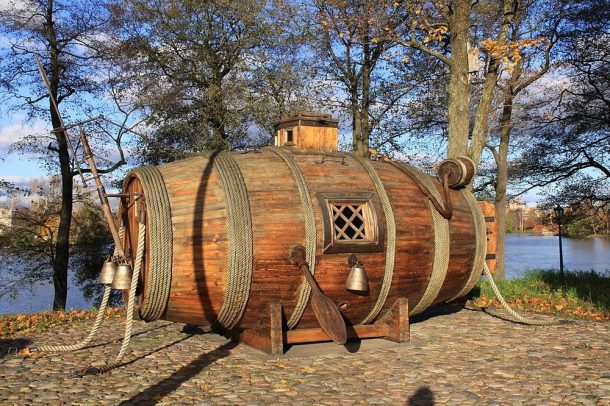
Nikonov’s submarine was built with wood and shaped like a barrel. It was armed with fire tubes. The submarine was supposed to reach an enemy’s ship, take its fire tubes out and blow up the enemy ship with some combustible mixture. Along with that, he also designed an airlock for aquanauts to come out of the submarine and destroy the ship. The first test of the submarine was conducted in 1724. The test was a disaster since the submarine sank, hit the bottom and broke the bilge. Nikonov himself and four other people of the crew were inside. Surprisingly, all of them managed to survive.
Peter supported and encouraged Nikonov to improve his design. However, the failures continued and plagued Nikonov, especially after his principle patron Tsar Peter died. In 1725, the second test failed and later a third one in 1727. After three consecutive failures, the Imperial Russian Navy charged Nikonov with abuse of public funds, and reduced him to the status of a common carpenter and send him to work at another shipyard on the Volga River.
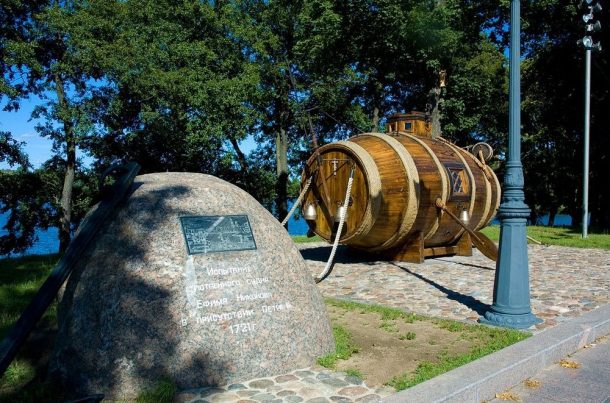
The first successful use of a military submarine during a combat happened during the American Revolutionary War in 1775. The submarine was designed by an American inventor David Bushnell and was named Turtle. It was an egg-shaped device that could accommodate only one person and was hand-powered. This was the first submarine which was capable of independent underwater operation and movement. The Turtle dived into the water by allowing some water into a bilge tank at the bottom of the vessel. It ascended by pushing water out through a hand pump. Hand-cranked propellers provided a verticle and horizontal movement with a speed of 4.8km/h. The vessel contained enough that was enough to carry out thirty minutes of operation.
During the American Revolutionary War, The Turtle was operated by Sgt. Ezra Lee. He tried to attack the British warship HMS Eagle but before he could attack, he was discovered and was forced to abandon the submarine. However, the only records of this attack are by Americans, British history has no such event in the record which makes the whole story doubtful. The replica models of the Turtle are now on display at several museums across the United States as well as the Royal Navy Submarine Museum at Gosport, England.
